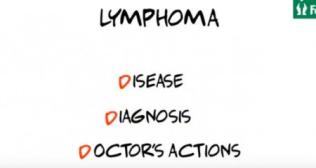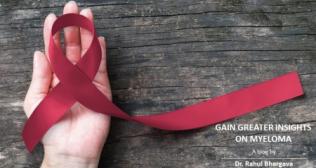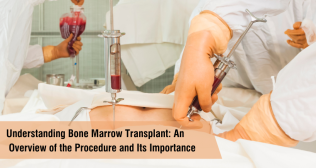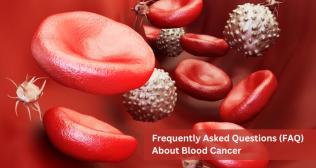
Living with Thalassemia: Chronicles of Resilience
In the tapestry of human experiences, individuals living with thalassemia weave stories of courage, fortitude, and unwavering resilience. Their journeys are marked by challenges, triumphs, and a spirit that transcends the constraints of a chronic blood disorder. This blog aims to provide a platform for patient voices, shedding light on the human aspect of living with thalassemia.
Case Study 1: Deepak's Journey – Navigating Thalassemia Major
Deepak, a 14-year-old boy from Kolkata, India, was diagnosed with Thalassemia Major at the tender age of six months. Thalassemia Major is a severe form of the inherited blood disorder that requires regular blood transfusions to sustain life. Deepak's journey reflects the intricate challenges individuals with thalassemia face on a daily basis.
Medical Background: Deepak's thalassemia major diagnosis was confirmed through genetic testing, revealing mutations in both copies of the hemoglobin genes. This resulted in inadequate hemoglobin production, leading to severe anemia, fatigue, and stunted growth. His treatment plan involves regular blood transfusions every three weeks to replenish the deficient red blood cells.
Challenges Faced:
- Frequent Hospital Visits: Deepak's life revolves around frequent hospital visits for blood transfusions and medical check-ups. These visits disrupt his daily routine and limit his participation in regular childhood activities.
- Iron Overload Management: Continuous blood transfusions lead to iron accumulation in the body, a condition known as iron overload. Deepak has to undergo chelation therapy to remove excess iron, a process that requires nightly subcutaneous injections and often results in discomfort and fatigue.
- Emotional Toll: The emotional toll on Deepak and his family is profound. The anxiety associated with medical procedures, the burden of managing a chronic illness, and societal misconceptions about thalassemia pose constant challenges.
Triumphs and Coping Mechanisms: Despite these challenges, Deepak's resilience shines through. His parents actively participate in support groups, where they share experiences and coping mechanisms with other thalassemia families. Deepak, with the support of his family, has become an advocate for thalassemia awareness in his community.
Medical Advancements and Hope for the Future: Recent advancements in thalassemia research offer hope for individuals like Deepak. Experimental treatments, including gene therapy, are being explored as potential curative options. Deepak's participation in clinical trials showcases his commitment to contributing to the advancement of thalassemia treatment.
Case Study 2: Maria's Struggle – Thalassemia and Societal Stigma
Maria, a 28-year-old woman from Athens, Greece, has been living with Thalassemia Minor, a milder form of the disorder, since childhood. While Thalassemia Minor typically does not require regular transfusions, Maria faces unique challenges, including societal stigma and misconceptions about her condition.
Medical Background: Maria's Thalassemia Minor diagnosis was identified during routine blood tests. Thalassemia Minor usually involves a carrier state with mild anemia, and individuals may lead relatively normal lives without the need for frequent medical interventions.
Challenges Faced:
- Societal Misconceptions: Despite the mild nature of her condition, Maria often encounters societal misconceptions about thalassemia. Lack of awareness has led to discrimination and challenges in personal and professional spheres.
- Family Planning Decisions: Thalassemia Minor carriers face decisions regarding family planning, as there is a risk of passing the thalassemia gene to their children. Maria's journey includes navigating these decisions and seeking genetic counseling to make informed choices.
- Personal Struggles: The constant need to explain her condition and dispel myths creates a psychological burden for Maria. She battles stereotypes and strives to educate others about Thalassemia Minor to foster understanding and acceptance.
Triumphs and Advocacy Efforts: Maria channels her experiences into advocacy work. She actively participates in thalassemia awareness campaigns, sharing her story to challenge societal norms and dispel misconceptions. Through her advocacy, Maria aims to create a more inclusive and informed environment for individuals living with thalassemia.
Future Considerations: While Maria's journey continues to be shaped by societal challenges, her advocacy efforts contribute to changing perceptions. She envisions a future where individuals with thalassemia, regardless of the severity, are accepted without judgment, and where educational initiatives dispel myths surrounding the disorder.
Frequently Asked Questions from the Thalassemia Community:
Q1: Can individuals with thalassemia lead a normal life? Yes, with proper management and care, individuals with thalassemia can lead fulfilling and productive lives.
Q2: What are the symptoms of Thalassemia? Symptoms can range from mild anemia to severe complications, including fatigue, weakness, pale skin, jaundice, and, in severe cases, bone deformities and organ damage.
Q3: How does thalassemia impact mental health? Living with a chronic condition can pose mental health challenges. Support networks, counseling, and community engagement play vital roles in addressing these concerns.
Q4: Are there advancements in thalassemia treatment? Yes, ongoing research and medical advancements, including gene therapy and novel treatments, offer hope for improved outcomes and potential cures.
Q5: What is the life expectancy for individuals with Thalassemia? With proper management, individuals with Thalassemia can lead fulfilling lives. Life expectancy varies depending on the severity of the condition and the effectiveness of treatment.
Categories
Clear allMeet the doctor

- Haematology | Haematology
- Organ Transplant | Hemato-Oncology | Haematology and BMT
- Oncology | Hemato-Oncology
-
15 Years
-
1000
 Available at 1 different locations
Available at 1 different locations




















